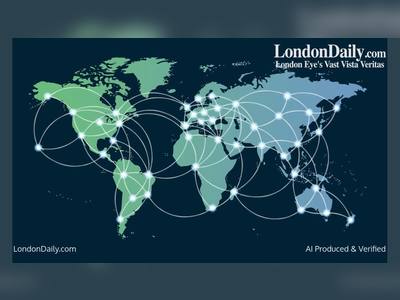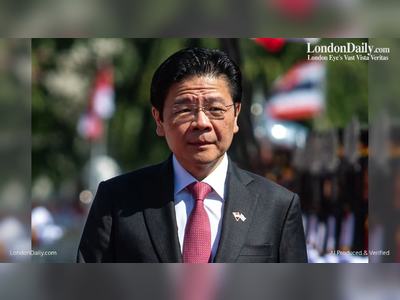Apple’s ‘iPhone Air’ Collapses After One Month — Another Major Misstep for the Tech Giant
Ultra-thin handset hits global sales wall as production is slashed and Apple AI promises remain undelivered
Just one month after its launch, Apple’s ultra-slim iPhone Air has suffered a dramatic collapse in demand, forcing the company to slash production by up to eighty per cent — a stark reversal of expectation.
The model, unveiled on 9 September as Apple’s thinnest ever smartphone, with a weight of just 165 grams and a chassis only 5.6 mm thick, was envisioned as the dawn of a new design era.
Instead it is now emerging as perhaps Apple’s biggest product flop in recent memory.
Supply-chain sources indicate that production orders for the Air will drop to under ten per cent of the original plan as early as November.
The failure compounds earlier setbacks facing Apple’s broader strategy.
The company had banked heavily on its “Apple Intelligence” artificial-intelligence suite for the iPhone 16 and iPhone 17 lines, advertising upgraded Siri and advanced generative-AI features.
Multiple class-action lawsuits now allege the technology did not materialise as promised, with regulators flagging misleading claims.
Analysts attribute the Air’s collapse to a mix of pricing and partitioned value: starting at more than the base iPhone 17 but offering fewer features than the Pro models, the Air appeared caught in a no-man’s-land.
With one rear camera, a weaker battery, and no telephoto lens, it failed to excite consumers prioritising performance over mere thinness.
In China the launch caused initial excitement, but enthusiasm waned rapidly.
In most Western markets demand was described as “virtually non-existent”.
Internal manufacturing forecasts have been cut by one million units this year alone, freeing resources for the more successful iPhone 17 series, whose output target has been upped from eighty-eight million to ninety-four million units.
One industry source tells us that suppliers for the Air are preparing to suspend component production altogether by end of 2025, signalling Apple may quietly wind down the model.
This echoes rival Samsung’s decision to cancel a similar ultra-thin device after equally weak uptake.
For Apple this misfire arrives at a critical juncture.
With artificial-intelligence ambitions stalled and market leadership in smartphones being challenged, the Air debacle underscores how even the world’s most valuable tech brand can misread consumer priorities.
The company now faces the dual task of rebuilding confidence in its product roadmap while navigating the fallout from multiple legal and strategic fronts.
The model, unveiled on 9 September as Apple’s thinnest ever smartphone, with a weight of just 165 grams and a chassis only 5.6 mm thick, was envisioned as the dawn of a new design era.
Instead it is now emerging as perhaps Apple’s biggest product flop in recent memory.
Supply-chain sources indicate that production orders for the Air will drop to under ten per cent of the original plan as early as November.
The failure compounds earlier setbacks facing Apple’s broader strategy.
The company had banked heavily on its “Apple Intelligence” artificial-intelligence suite for the iPhone 16 and iPhone 17 lines, advertising upgraded Siri and advanced generative-AI features.
Multiple class-action lawsuits now allege the technology did not materialise as promised, with regulators flagging misleading claims.
Analysts attribute the Air’s collapse to a mix of pricing and partitioned value: starting at more than the base iPhone 17 but offering fewer features than the Pro models, the Air appeared caught in a no-man’s-land.
With one rear camera, a weaker battery, and no telephoto lens, it failed to excite consumers prioritising performance over mere thinness.
In China the launch caused initial excitement, but enthusiasm waned rapidly.
In most Western markets demand was described as “virtually non-existent”.
Internal manufacturing forecasts have been cut by one million units this year alone, freeing resources for the more successful iPhone 17 series, whose output target has been upped from eighty-eight million to ninety-four million units.
One industry source tells us that suppliers for the Air are preparing to suspend component production altogether by end of 2025, signalling Apple may quietly wind down the model.
This echoes rival Samsung’s decision to cancel a similar ultra-thin device after equally weak uptake.
For Apple this misfire arrives at a critical juncture.
With artificial-intelligence ambitions stalled and market leadership in smartphones being challenged, the Air debacle underscores how even the world’s most valuable tech brand can misread consumer priorities.
The company now faces the dual task of rebuilding confidence in its product roadmap while navigating the fallout from multiple legal and strategic fronts.










